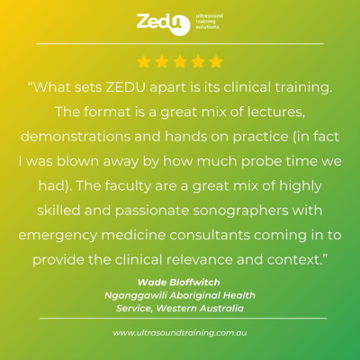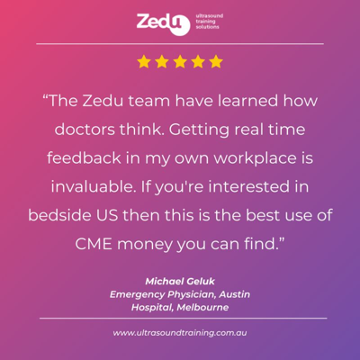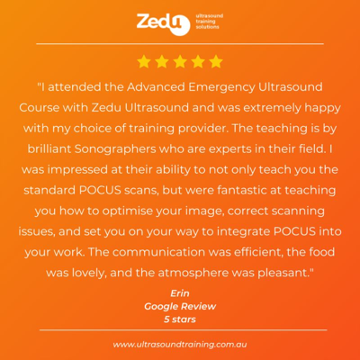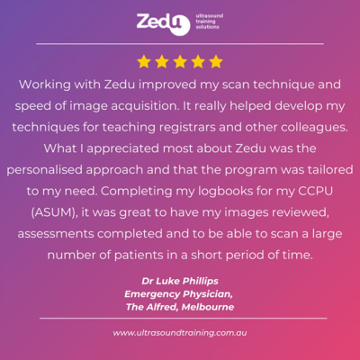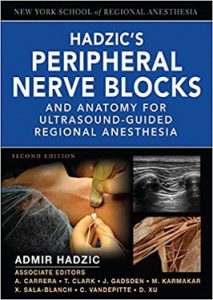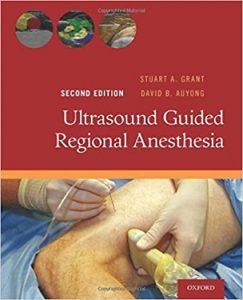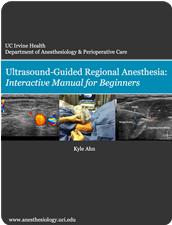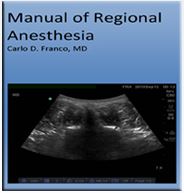Your space for anaesthetics learning
Zedu offers a range of ultrasound courses for anaesthetists, providing the practical skills needed to enhance patient safety and procedural confidence across multiple areas of practice. Our hands-on training courses focus on ultrasound-guided regional anaesthesia, vascular access, focused cardiac ultrasound (FoCUS), lung ultrasound, and gastric ultrasound, ensure that anaesthetists and trainees develop the expertise to effectively integrate ultrasound into their daily clinical workflows.Grounded in the principles of anatomical understanding, technical proficiency, and procedural accuracy, these courses equip clinicians with the skills to confidently identify key structures and perform ultrasound-guided interventions with precision. By emphasizing a systematic approach, they enhance spatial awareness, refine technique, and ensure consistent, safe, and effective application in clinical practice.
The Ultrasound-Guided Regional Anaesthesia course covers essential nerve blocks for upper and lower limb regional anaesthesia, equipping participants with the confidence to deliver safe and effective pain management. The vascular access course refines techniques for ultrasound-guided cannulation and central line placement, improving success rates and reducing complications. For anaesthetists involved in perioperative and critical care settings, the FoCUS and lung ultrasound courses enhance the ability to assess cardiac function and detect lung pathology, aiding in rapid decision-making. The gastric ultrasound course teaches participants to evaluate gastric contents, helping to assess aspiration risk and optimise airway management.
With a focus on practical application, small-group learning, and expert-led instruction, Zedu’s training programs ensure that anaesthetists gain theoretical knowledge and hands-on experience to elevate their practice and improve patient outcomes.
Why Choose Zedu for Ultrasound Training?
Clinically Focused Curriculum
Zedu’s ultrasound courses are designed with your clinical practice in mind. Each course is structured to ensure you gain the skills and knowledge directly applicable to your day-to-day patient care. Whether refining peri-operative cardiac assessment, mastering regional nerve blocks, or improving gastric ultrasound interpretation, our curriculum bridges the gap between theory and real-world application, equipping you with practical, decision-making confidence.
Hands-On Training with Real-Life Patient Models
We believe the best way to learn ultrasound is through experience. That’s why our courses provide extensive hands-on training using real-life patient models, offering exposure to a diverse range of body types and pathologies. This approach ensures that you develop the scanning proficiency needed to confidently apply your skills in clinical settings, rather than relying on simulated scenarios that may not accurately reflect real-world challenges.
Hands-On Training with Real-Life Patient Models
We believe the best way to learn ultrasound is through experience. That’s why our courses provide extensive hands-on training using real-life patient models, offering exposure to a diverse range of body types and pathologies. This approach ensures that you develop the scanning proficiency needed to confidently apply your skills in clinical settings, rather than relying on simulated scenarios that may not accurately reflect real-world challenges.

Experienced Instructors Committed to Your Success
At Zedu, you’ll learn from expert sonographers and clinicians who are passionate about ultrasound education. Our instructors bring years of hands-on experience in anaesthesia, emergency medicine, and critical care, ensuring that training is relevant, practical, and engaging. Dedicated to your success, they provide individualized feedback and guidance, helping you refine your technique and build confidence in your scanning abilities.
Deliberate Practice for Mastery
True expertise comes from structured, purposeful practice. Our courses emphasize deliberate practice, where you’ll engage in repetitive, focused scanning exercises designed to refine your technique and reinforce critical concepts. With targeted feedback and step-by-step guidance, this approach accelerates skill development, ensuring that you leave with a higher level of competence and the ability to apply ultrasound effectively in high-stakes clinical environments.
Experienced Instructors Committed to Your Success
At Zedu, you’ll learn from expert sonographers and clinicians who are passionate about ultrasound education. Our instructors bring years of hands-on experience in anaesthesia, emergency medicine, and critical care, ensuring that training is relevant, practical, and engaging. Dedicated to your success, they provide individualized feedback and guidance, helping you refine your technique and build confidence in your scanning abilities.
Deliberate Practice for Mastery
True expertise comes from structured, purposeful practice. Our courses emphasize deliberate practice, where you’ll engage in repetitive, focused scanning exercises designed to refine your technique and reinforce critical concepts. With targeted feedback and step-by-step guidance, this approach accelerates skill development, ensuring that you leave with a higher level of competence and the ability to apply ultrasound effectively in high-stakes clinical environments.
Who should attend:
- Anaesthetists and Anaesthetic Trainees – From mastering the basics to fine-tuning advanced ultrasound skills for peri-operative cardiac assessment, gastric ultrasound, and regional nerve blocks.
- Emergency Physicians – Enhancing proficiency in ultrasound-guided regional nerve blocks and peri-operative cardiac assessment.
- GP Anaesthetists – Strengthening ultrasound skills for peri-operative and procedural applications in rural and remote settings.
- Pain Specialists – Refining ultrasound-guided techniques for precision in interventional pain management.
Why ultrasound matters
Ultrasound has become an essential tool for anaesthetists, enhancing precision, safety, and efficiency in a wide range of clinical applications. Whether performing ultrasound guided nerve blocks, vascular access, gastric assessments, or cardiac evaluations, real-time ultrasound guidance improves accuracy, reduces complications, and optimizes patient outcomes. By directly visualizing anatomy and needle placement for nerve blocks, anaesthetists can confidently deliver local anaesthetics, ensuring more effective nerve blocks with fewer adverse events. Similarly, ultrasound-guided vascular access minimizes complications such as arterial puncture or hematoma, making procedures safer and more reliable, particularly in high-risk patients.
Beyond procedural guidance, ultrasound is invaluable in perioperative assessment and decision-making. Gastric ultrasound allows anaesthetists to assess residual gastric contents, guiding safer airway management, while cardiac ultrasound provides rapid, bedside insights into haemodynamic status, volume responsiveness, and cardiac function. This real-time diagnostic capability enables anaesthetists to tailor anaesthetic plans, anticipate complications, and respond proactively to changes in a patient’s condition. With ultrasound, anaesthetists can elevate the standard of care, ensuring precision, safety, and improved patient experiences across a broad range of clinical scenarios.
Why ultrasound matters
Ultrasound has become an essential tool for anaesthetists, enhancing precision, safety, and efficiency in a wide range of clinical applications. Whether performing ultrasound guided nerve blocks, vascular access, gastric assessments, or cardiac evaluations, real-time ultrasound guidance improves accuracy, reduces complications, and optimizes patient outcomes. By directly visualizing anatomy and needle placement for nerve blocks, anaesthetists can confidently deliver local anaesthetics, ensuring more effective nerve blocks with fewer adverse events. Similarly, ultrasound-guided vascular access minimizes complications such as arterial puncture or hematoma, making procedures safer and more reliable, particularly in high-risk patients.
Beyond procedural guidance, ultrasound is invaluable in perioperative assessment and decision-making. Gastric ultrasound allows anaesthetists to assess residual gastric contents, guiding safer airway management, while cardiac ultrasound provides rapid, bedside insights into haemodynamic status, volume responsiveness, and cardiac function. This real-time diagnostic capability enables anaesthetists to tailor anaesthetic plans, anticipate complications, and respond proactively to changes in a patient’s condition. With ultrasound, anaesthetists can elevate the standard of care, ensuring precision, safety, and improved patient experiences across a broad range of clinical scenarios.
Zedu courses are recognised by:
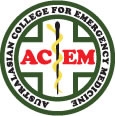

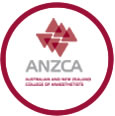

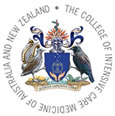
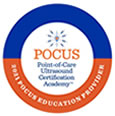
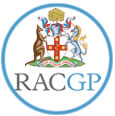
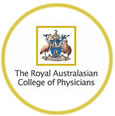
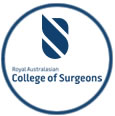
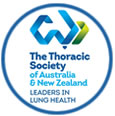
Find a course, set a date and register now!
Use ultrasound to safely guide regional anaesthesia & reduce complications.
On completion of this two-day clinically focused ultrasound program, learners will:
- Describe a plan for troubleshooting image optimisation using the various probe moves and ultrasound machine setting adjustments
- and much more!
$2,520.00Select options This product has multiple variants. The options may be chosen on the product page
Use ultrasound to safely guide pain management procedures & reduce complications.
Elevate your skills in ultrasound imaging with hands-on training in probe manipulation, image optimization, and anatomical landmark identification.
$2,520.00Select options This product has multiple variants. The options may be chosen on the product page
Enhance Your Clinical Practice with Point-of-Care Gastric Ultrasound
This comprehensive one-day gastric ultrasound course is designed for healthcare professionals seeking to integrate gastric ultrasound into their clinical practice.
By the end of this medical education program, you will be able to confidently use gastric ultrasound to assess patients, contributing to improved decision-making in high-risk scenarios such as surgery, trauma, and emergency airway management.
$1,310.00Select options This product has multiple variants. The options may be chosen on the product page
Avoid complications and learn how to use ultrasound to guide your difficult peripheral and central vascular access procedures.
Select your date and enter your details to start your journey with us – we can’t wait to meet you.
$1,310.00Select options This product has multiple variants. The options may be chosen on the product page
Move beyond the basics and build your confidence to perform and interpret cardiac ultrasound. Master your spatial reasoning skills to get the best image possible for diagnosis.
Select your date and enter your details to start your journey with us – we can’t wait to meet you.
$3,640.00Select options This product has multiple variants. The options may be chosen on the product page
At the completion of this course you will have developed a systematic approach to conduct cardiac ultrasound assessment of a shocked or arrested patient, and the ability to use ultrasound to assess the patient’s fluid status.
$1,310.00Select options This product has multiple variants. The options may be chosen on the product page
Learn how to integrate lung ultrasound into the assessment of the arrested, breathless, febrile or shocked patient. Utilise lung ultrasound for the diagnosis and management of covid-19. Understand how the image is generated to successfully correlate with the clinical presentation.
$1,310.00Select options This product has multiple variants. The options may be chosen on the product page
Learn how to integrate lung ultrasound into the assessment of the arrested, breathless, febrile or shocked patient.
Start your journey with Zedu – we look forward to delivering a focused and relevant educational experience for you.
$1,310.00Select options
This online module is perfect for getting started. Through a combination of focused video explanations and guided interactive activities you will be able to:
- Navigate your way around your system and its primary functions
- Set up for an ultrasound exam
- and much more!
$249.00Add to cart
For new learners of ultrasound, this online module is perfect for getting started. Through a combination of focused video explanations and guided interactive activities you will be able to:
- Navigate your way around your system and its primary functions
- Set up for an ultrasound exam
- and much more!
$149.00Select options
The following ultrasound system manufacturers proudly support our courses
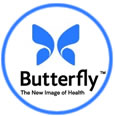
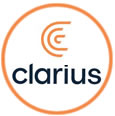
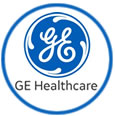
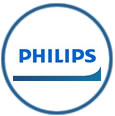
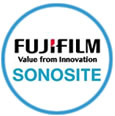
Why is learning ultrasound so important for anaesthetists?
It is our strong belief – regardless of curriculum requirements – that every anaesthetist must understand ultrasound. Whether you’re placing a peripheral or central line, performing a pre-surgical cardiac assessment, initiating a nerve block or assessing an airway, ultrasound is invaluable. Regardless of its utility in your context, knowing what ultrasound can do, and how it can be applied is like a good shot of espresso coffee – once you get a taste you’ll want more. And more…
And once you get started it’s a no brainer that ultrasound skills will help you be a better health practitioner. In fact, ultrasound is recognised around the world as one of the most important skills you can develop to improve outcomes, save time and money (for you and your patient).

Unfortunately, most anaesthetists have been exposed to very little training. And where they have it has been in a very unorganised and scattered approach. More often than not training has been provided by energetic enthusiasts in the workplace who can demonstrate the potential for ultrasound, but – while passionate – haven’t invested in their ability to teach the art and science behind it. Plus the compromises that we all know come from training at work means a less than ideal learning environment. This results in little take away skills, no pathway to develop skills and ultimately disappointment.
But you can do something about this. In order for you to avoid the stressful ups and downs of learning ultrasound, having a strong foundation on which to build your skills and a clear plan in place to support your development is fundamental. That’s where we can help.
Skills development
Every ultrasound user must establish the skills fundamental to acquiring an image – from turning a system on and optimising the system setup, to patient positioning and ergonomics. We’ll give you the foundations for independent practice.
Scanning Skills
To get the most out of your efforts and before picking up a probe it’s important to identify your objective – do you have a purpose for scanning? Scanning for scanning’s sake isn’t optimal. When learning you need to engage in deliberate practice to develop your ultrasound skills. When applied clinically, you need to have the ability to define your needs, identify limitations and make decisions. We’ll help you focus on where you’re going and what you want to achieve.
Learning Pathway
Attending a course is one thing – making the time to develop your ultrasound skills and abilities is another. Learning ultrasound is a lifelong commitment – trust us, we know. Commit to invest your time before you start. Take time to remove practice barriers. Focus your time. Track your progress. Spend time developing skills out of the clinic. We’ll work with you to identify a pathway for skills development in your context.
Support
When you get back to the workplace, what’s next? Early enthusiasm to use ultrasound can soon fade to frustration when you return to the workplace, where the reality of clinical demands and often lack of ultrasound users can undermine your confidence. We can help by providing ongoing support, training and credentialing – as well as ongoing information through our free coaching corner and social media posts. We’re there for you.
How do our ultrasound courses work for anaesthetics?
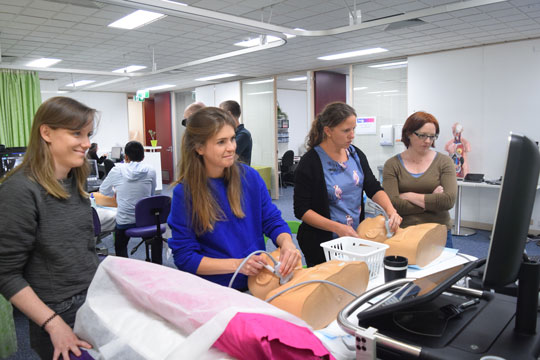
Zedu’s accredited ultrasound training courses follow a proven step-by-step program to guide anaesthetists through the myriad of learning strategies and ultrasound applications to find what‘s most effective to build a skillset that works in your clinical context.
Each course follows a systematised approach to help you understand principles, develop skills and implement strategies that have worked for thousands of physicians in Australia, New Zealand and around the world.
It starts with registration, where you’re provided access to a range of online resources and activities to prepare you before you arrive. Don’t worry – this is not onerous, with videos and resources focused on the topics of that course.
Once you get here you’ll be working with a team of qualified sonographer educators trained in the specifics of point-of-care applications, you get the opportunity to work hand-in-hand with experts. Whatever your level of experience we adapt to your needs, accelerating your personal learning curve. The ultimate goal is to give you the skills, abilities and knowledge to successfully and independently use ultrasound – regardless of the location or technology.
From lung and heart, needle guidance and anatomical assessment – we have you covered.
But once the course is over it doesn’t stop there.
As big supporters of FOAMED (Free Online Access Medical EDucation) you can register and participate in free monthly coaching corner provides you with the opportunity to ask questions, hear from ultrasound experts from around the world and keep your skills up to date. Check in with our blog and socials to keep up to date with the latest in ultrasound news.
And if you want more, explore our full range of courses and one-on-one coaching options to help you achieve your goals.
Our programs are built on Zedu’s seven key values that have been developed to support you:

RELEVANCE
Focusing on clinical practice to deliver immediate benefit to clinicians and patients

FUN
Learning should always be fun, engaging and entertaining

QUALITY
Providing real patients, small groups and skilled educators for best practice education

IMPACT
Create a ripple effect – making a difference for clinicians so they can make a difference for their patients

INNOVATION
Creative teaching methods to inspire better results

COLLABORATION
Making friends and breaking silos is what we’re about; the future of medicine lies in collaboration

SAFE LEARNING ENVIRONMENT
No question’s too big, too small, or too silly – no judgements here
Who are Zedu Ultrasound courses for?
Our courses are not for everyone. Our programs are for emergency and critical care physicians who…
Are regularly called to diagnose or perform procedures where ultrasound could speed the process
Are open to doing things differently to achieve better results
Believe that ultrasound can promote better patient outcomes
Have seen ultrasound in practice and want to know more
Wonder how ultrasound could be useful in their clinical context
Are keen to learn how to use state of the art technology
It doesn‘t matter whether you’ve been scanning for years or have never picked a probe up before, if it’s a yes to any of the above criteria and you’re ready to take your diagnostic and procedural skills to the next level, then you’re welcome to join us. Our Anaesthetics Courses will provide you with the most up-to-date information by professional trainers.
FAQs
From one to twelve, and everything in between. As a rule we exceed the minimum requirements, ensuring that there is an industry leading ratio of 1 sonographer educator or physician to every 4 course participants. This is important as it ensures that you get more hands-on time all the time.
The better question to ask is what machines don’t you have! Most of the major players in the ultrasound world support us with their latest systems, making sure you get access to the best and newest technology available. We have so many systems here – from high end carts to handhelds – that in most cases there is a one-to-one ratio.
Zedu courses are designed for your specialty. With quality education always at our front of mind, you’ll be learning with a group of your peers from start to finish. This ensures you are getting a no compromise sequential and structured education experience, all the while having the security and safety of learning with your peers. Your learning experience is not compromised by people joining at different stages and at different levels – you’ll be on board with the same team from beginning to end.
Would you only go to part of a movie? Our courses are designed to be attended as a whole, structured in a sequential way to make sure you develop and extend your ultrasound repertoire. Besides – if gaining your credentials is an important part of your motivation to come along, the bodies that accredit our courses wouldn’t look too kindly on you skipping class.
Absolutely not. Our courses are designed for anaesthetists at any stage of their career, with any level of ultrasound experience. Our experienced sonographer educators will adapt their teaching to meet you at your level – no stress.
In short – it depends.
If you’re attending to meet the requirements of your own local health authority – and attending a course is all that’s required – then the answer may be yes.
If you’re attending to meet the requirements of your own local health authority and they require validation of your skills via an external/third party credentialing provider – such as the POCUS Certification Academy or ASUM – then no.
If it’s all too confusing and causing you a headache we can help you navigate the credentialing quagmire – please get in touch.
Yes indeed. Make sure you bring your chargers and accessories too.
The courses are run at the Zedu Learning HQ:
8-10 Flintoff Street, Greensborough VIC 3088, Australia
When you register you’ll get information on our location and transport options delivered to your email inbox too.
Yes we do – we love to tour and share ultrasound around the world. If you’d like to discuss what options you have to get us to deliver training at your place please get in touch.
That’s precisely what we do. Our courses are designed for you to get your hands on a probe so you can take home practical skills. All courses have a ratio of at least 2/3 practical, 1/3 didactic – you won’t be disappointed.
No – but there is a very affordable options only a three-minute walk from our front door. You can find more information here…
Yes – we love teaching one-on-one as it delivers optimal results over a short time-period. Get in touch.
Yes there is – but it’s not too onerous. We recommend you at least revise your physics by watching the short videos before you arrive – the other material you can review as you go, or afterwards.
Use the login details you created at registration.
The vast majority of Zedu ultrasound courses carry accreditation or are recognised by one or more bodies, including:
- The Australasian College for Emergency Medicine (ASUM)
- The Australian College of Midwives (ACM)
- The Australian College of Rural & Remote Medicine (ACRRM)
- The Australian and New Zealand College of Anaesthetists (ANZCA)
- The Australasian Society of Ultrasound in Medicine (ASUM)
- The College of Intensive Care medicine of Australia and New Zealand (CICM)
- The Point-of-Care Ultrasound Certification Academy
- The Royal Australian College of General Practitioners (RACGP)
- The Royal Australasian College of Physicians (RACP)
- The Royal Australasian College of Surgeons (RACS)
- The Royal Australian and New Zealand College of Obstetricians and Gynaecologists (RANZCOG)
- The Thoracic Society of Australia and New Zealand (TSANZ)
No – we are famous for our catering – rest assured you will be well fed and watered.
Resources
How to: Needle Guidance with Ultrasound
Needle guidance with ultrasound – a core skill whose difficulty is often underrated. Get your preparation, set up and alignment right and you’ll hit your target every time.
In this edition of the POCUS #coachingcorner:
- Suean focuses on what are some of the problems you may encounter with needle guidance and why – whether it’s vascular access or a more advanced procedural application.
- Q&A discusses the problems practitioners have, and the pros and cons of the different types of ultrasound phantoms. Check out our free Phantom Compendium.
Recommended Texts
Hadzic’s Peripheral Nerve Blocks and Anatomy for Ultrasound-Guided Regional Anesthesia
The complete, authoritative, and practical guide to nerve blocks — with a comprehensive atlas of ultrasound anatomy. Hadzic’s Peripheral Nerve Blocks takes you step-by-step through traditional and ultrasound-guided nerve block techniques for Anaesthetics.
Ultrasound Guided Regional Anesthesia
by Grant (Editor), Auyong (Editor), Paperback – 26 March 2016
Ultrasound technology is enabling anesthesiologists to perform regional anesthetic procedures with greater confidence in accuracy and precision. With improvements in visualizing neural anatomy and needle movement, ultrasound guidance improves patient safety and operating room efficiency. This book offers a detailed, stepwise approach to this technique, identifying pearls and pitfalls to ensure success.
Free e-Books
Ultrasound-Guided Regional Anesthesia: Interactive Guide 4 Beginners [iBook]
What started out as an update to a rotation manual for anesthesiology residents has evolved into Ultrasound-Guided Regional Anesthesia: Interactive Manual for Beginners. This book covers basics of ultrasonography, knobology, sonoanatomy and techniques for the most commonly performed ultrasound-guided single-injection nerve blocks of the upper and lower extremities, as well as paravertebral and transversus abdominis plane (TAP) blocks. It is a practical and visually engaging introductory book that helps maximize learning through interaction with rich media. Embedded throughout the book are visual aids that include enhanced videos, interactive galleries, detailed review of sonoanatomy, as well as self-assessment quizzes that provide immediate feedback.
Manual of Regional Anesthesia [mulit-part pdf]
Regional anesthesia refers to a group of techniques performed either at the neuraxial or peripheral nerve levels that render part of the body insensate to pain. They accomplish this by selectively interrupting nerve transmission without the need to alter the patient’s level of consciousness. In this manual I discuss regional anesthesia related issues as well as nerve block techniques commonly used in the United States with special emphasis on the techniques we perform at Cook County Hospital in Chicago.
Testimonials
